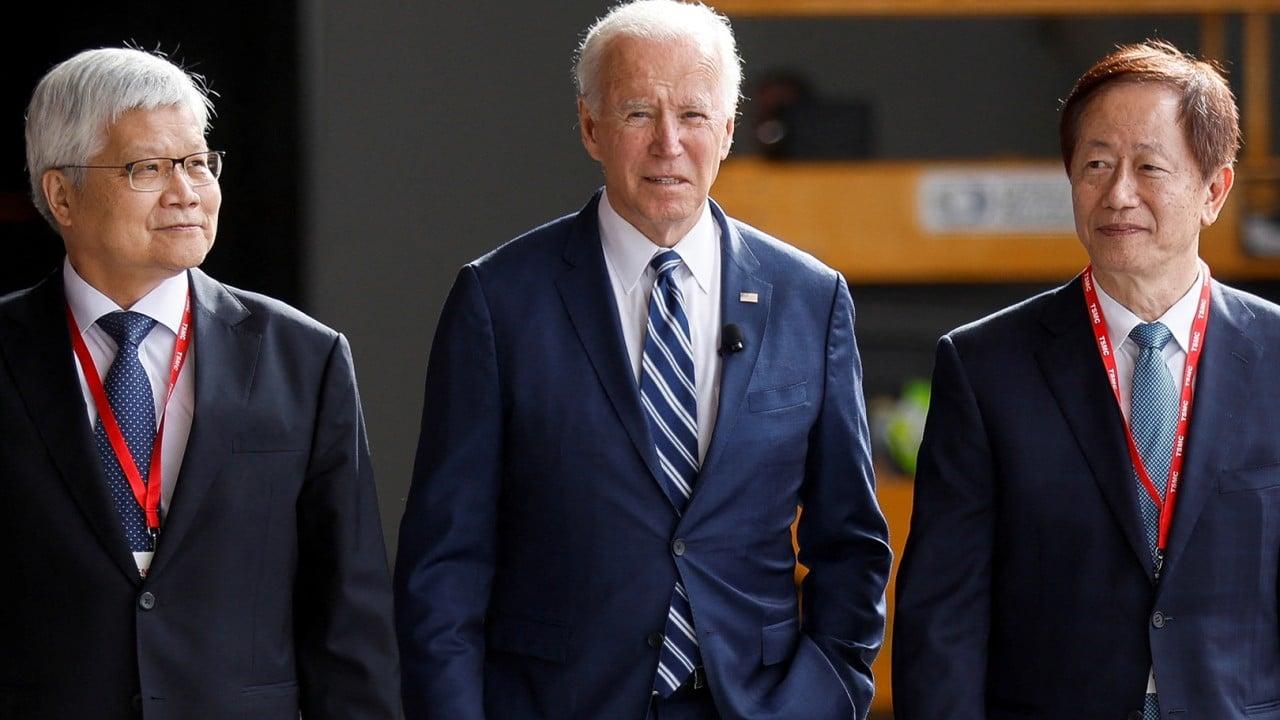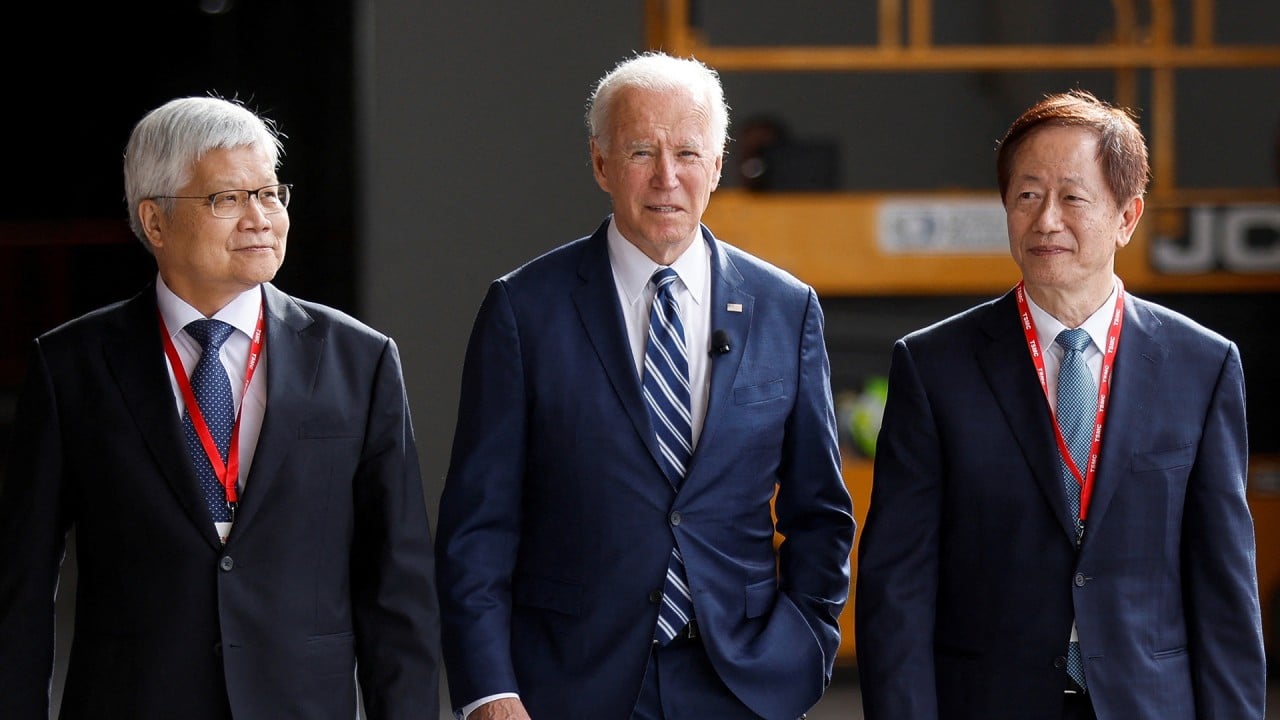
Park said Seoul was willing to work with Beijing to strengthen high-level exchanges and communication, deepen economic and trade cooperation and promote the continuous development of bilateral relations based on “mutual respect and reciprocity”.
Earlier this year, the US Congress passed the Chips Act to support the construction and development of US semiconductor factories and technology as well as the Inflation Reduction Act, which includes subsidies to purchase American-made electric cars.
In October, the US Commerce Department’s Bureau of Industry and Security updated its restrictions on China’s ability to acquire high-end US chip technology, equipment and talent.
Beijing’s Ministry of Commerce accused the United States of trade protectionism by curbing chip exports to China, stating that Washington had “overstretched the notion of national security, abused export control measures [and] hindered the normal international trade of chips and other products”.
As a leading chip producer, South Korea could play a major part in determining the success of US President Joe Biden’s strategy to contain Beijing and target China-centred hi-tech supply chains.
South Korean chip maker Samsung Electronics has spent US$17 billion in Texas to build a semiconductor factory, expected to be in operation by 2024, and announced a 20-year plan to invest US$200 billion to build a semiconductor production complex in the United States.
Another South Korean semiconductor producer, SK Hynix, has also pledged to invest US$15 billion for chip production in the United States.
During their meeting, Wang and Park also exchanged views on the situation on the Korean peninsula. Park expressed concern about North Korea’s provocations and urged Beijing to actively support Seoul’s dialogues with Pyongyang.
Wang said Beijing would play a “constructive role” in matters related to the Korean peninsula, according to a statement from the South Korean foreign ministry.


